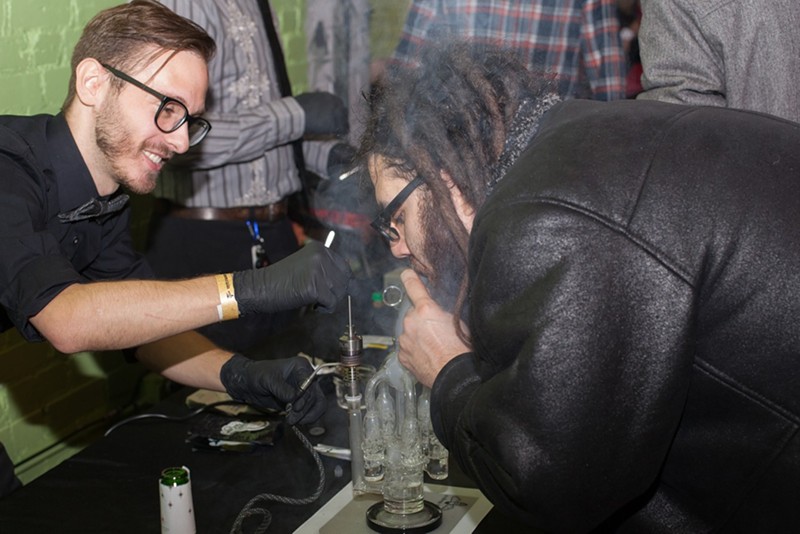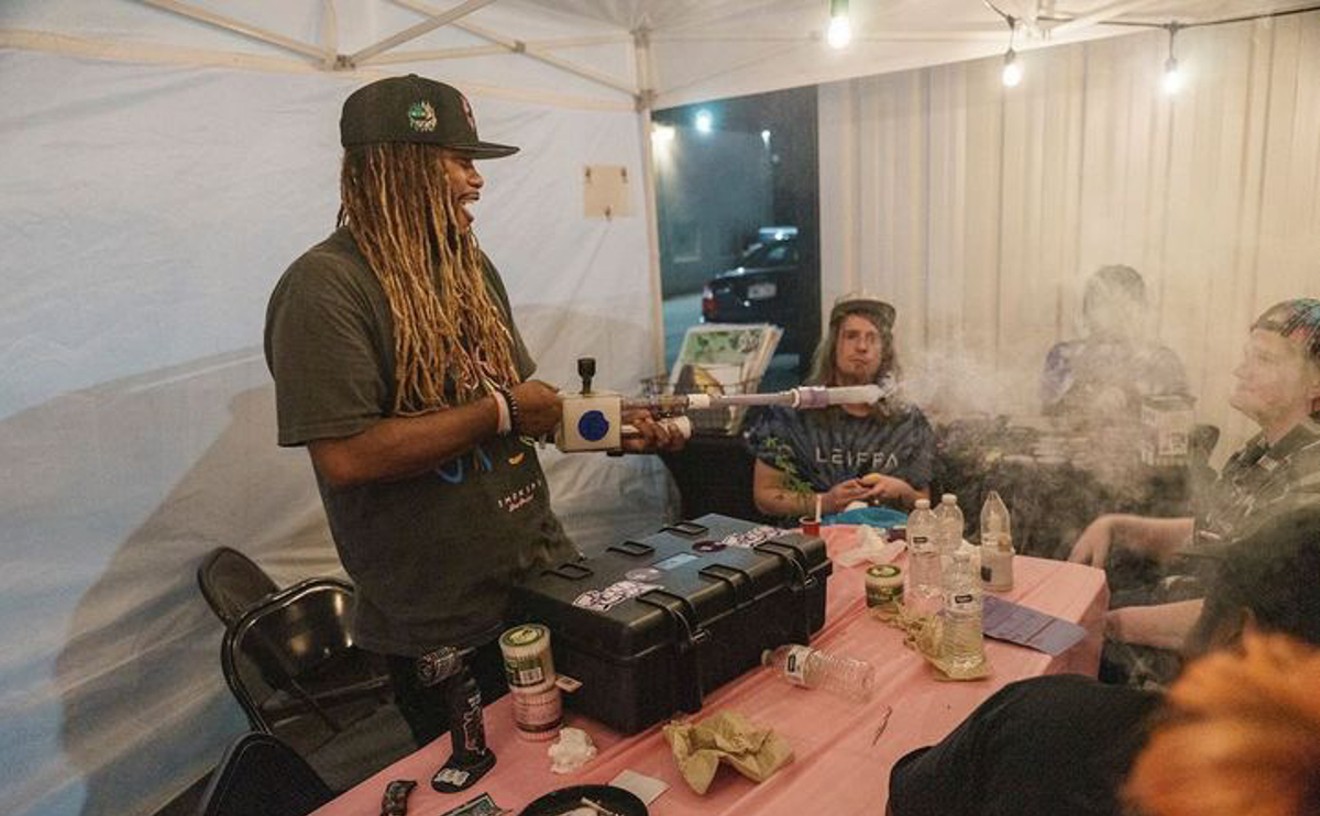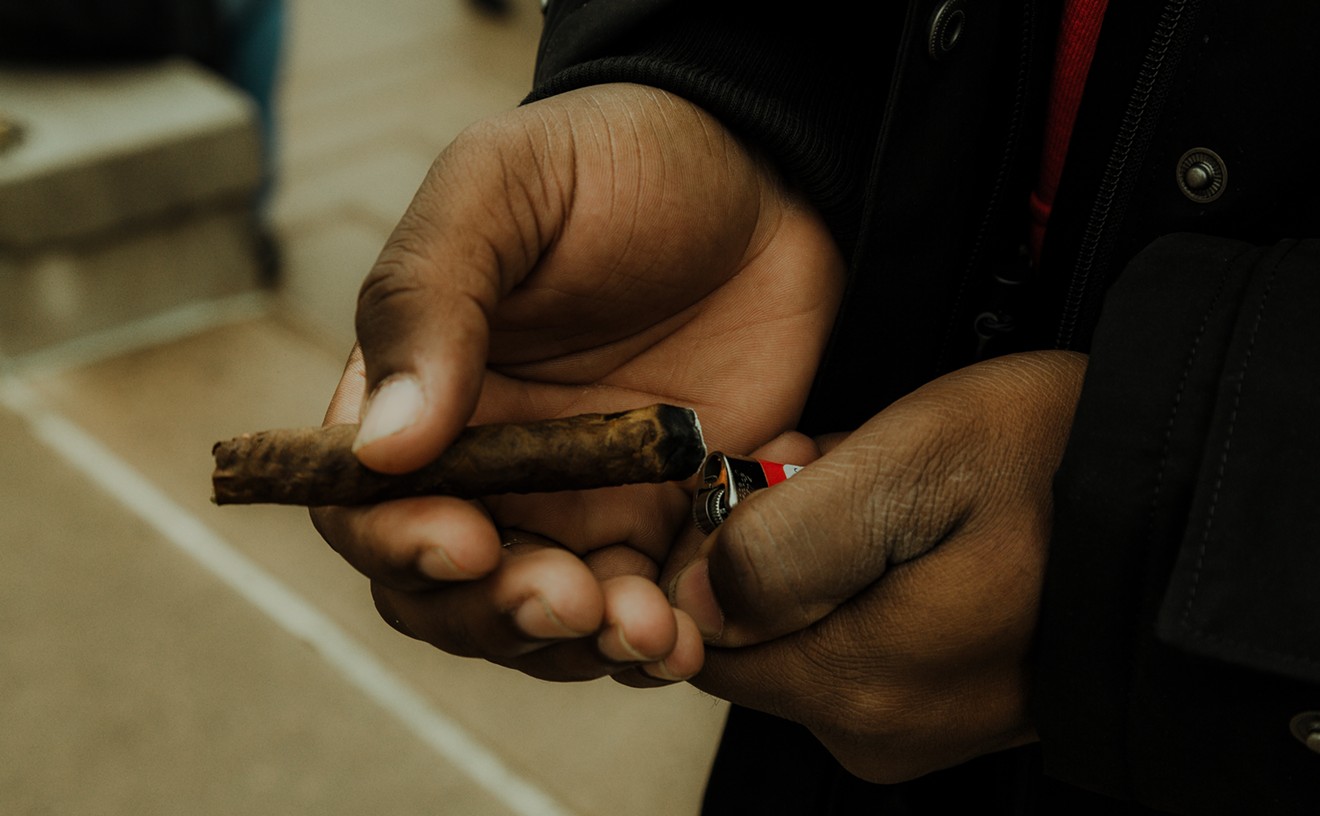
Colorado was the first state to legalize recreational marijuana in 2012, but is just now implementing social equity licensing rules.
Jacqueline Collins
The MED's 2021 licensee demographic study, released in September, found that around 2.9 percent of pot businesses in Colorado are owned by people who identify as Black, while 7.7 percent of licensees are Latino, and 83.7 percent identify as white. That's less than a 1 percent increase of Black marijuana business owners since 2018, when the data was first collected.
During the same span, the amount of Latino licensees rose a little over 2 percent. Asian marijuana business owners, previously unlisted in the 2018 survey's final analysis, accounted for about 3.9 percent of licensees. The percentage of women marijuana licensees has decreased since 2018, the report shows, falling from just under 22 percent to 19 percent.
“We want to open the door for more people to participate, not less people to participate. That's all I’ve ever been pushing for in this industry is, how do we get people involved?” says Wanda James, founder and CEO of Simply Pure Dispensary in Denver. "We know that when you have more women involved and more minority groups involved, more diversity, it’s just better all the way around and makes Colorado richer. Not just financially richer, but societally richer."
According to James, one of the few Black women who owns a marijuana business in Colorado, the disparity in owner demographics stems from a former Colorado law that prohibited individuals with felony drug charges from owning a dispensary. “That effectively knocked out all of your visionaries. It’d be like saying Bill Gates can’t participate in the tech industry because he made computers in his garage,” she says.
Although Colorado has since enacted laws allowing former drug felons to own marijuana businesses, the industry has matured since recreational legalization in 2012, and with that comes more financial hurdles, according to Khadija Adams, business coach at C.E. Hutton, a minority-focused business development firm in the cannabis industry.
“We’re all looking for capital, all raising capital. That is a huge barrier to entry,” Adams explains.
In March, Governor Jared Polis signed Senate Bill 21-111 to implement Colorado's own social equity program, which is about to release a first round of state-funded technical assistance for social equity entrepreneurs. The program has currently approved twenty applicants, according to the MED. However, approved social equity entrepreneurs — business owners from communities impacted by the War on Drugs — still need local approval before opening up shop in their respective communities.
In an effort to encourage more minority participation, local governments in Aurora and Denver have reserved licenses for social equity applicants. In February, Aurora began recreational marijuana deliveries, reserving delivery permits for social equity licensees and already-existing dispensaries until 2024. Denver took a more aggressive approach, only allowing social equity applicants to apply for any new marijuana business outside of testing laboratories until 2027.
"The licensing exclusivity was really a product of listening to our community and the stakeholders, people who have been negatively impacted by prohibition," Denver Department of Excises and Licenses communications director Eric Escudero says.
Recreational marijuana delivery, a recently allowed business practice in Denver, is "a huge opportunity for social equity applicants, because it's not as expensive to start a delivery transporter business as compared to a store or a cultivation," according to Escudero.
However, delivery licenses are off to a slow start, with only nine stores implementing them and three applications pending approval in Denver, Excise and Licenses data shows. According to National Cannabis Industry Association spokesman Morgan Fox, established marijuana companies have a social obligation to work with Denver's new licensees.
"If you’re actively involved in this industry, you have a duty to look at the past and try to make up for the harms that those policies have caused now that you’re making money off of it," he says.
Check out past and current diversity reports and additional information about the state's social equity program on the MED's website.











